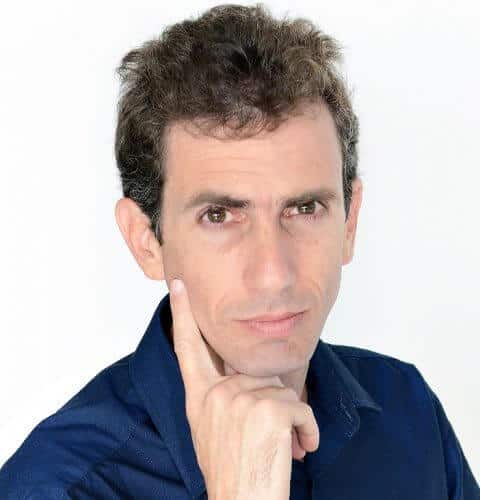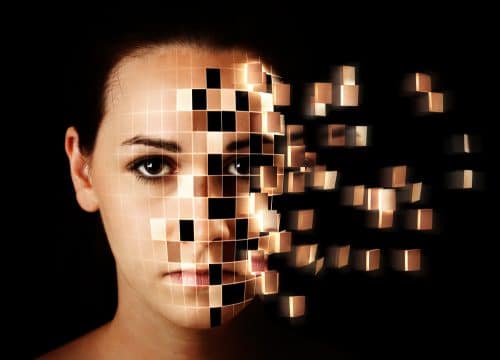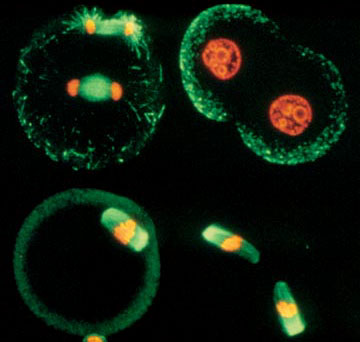This is what Erez Livna, a scientist, entrepreneur and futurist and founder of the biotech company Vecoy Nanomedicines, says in an interview with the Hadaan website

The trend of technological changes will accelerate but morality should remain the same. Says Erez Livna, scientist, entrepreneur and futurist. will be one of the lecturers at the Silicon Club meeting that will take place on 17/9 in the Nofim Hall at the Eretz Israel Museum in Ramat Aviv, starting at 18:30 p.m. Livna is a biologist, a graduate of the Weizmann Institute of Science, and the founder of the biotech company Vecoy Nanomedicines.
"I find that it is sometimes important to stop the race of life for a moment and look at the big picture of the reality of our lives. We are living in one of the most exciting times in human history, a very interesting time that we were all privileged to be born into. This is a time when the transformations are so fast that in our lifetime we are witnessing the change of technological eras. The adults among us remember an era when there was no internet, and there were no cell phones, things we take for granted today. The younger generation can't even imagine a world without Google and social networks, for example."
"In my opinion, this trend, not only does not change, it is even accelerating. We are living on a tsunami wave of changes that devours the reality of our lives and requires us to constantly adapt or be left irrelevant behind. A well-known example, for example, is the autonomous cars, which will change everything I know as transportation from end to end, starting with considerations of high safety and the lack of private ownership of a vehicle and ending with the impact on city planning."
"We are the last generation, a speaking generation that will still remember a time when vehicles were driven by a person, and then we will be the first to move to the era of self-driving vehicles. The next generation will not know a reality other than autonomous vehicles and will not understand what a driver's license is. This is an era of increasing automation and artificial intelligence that perform operations that were once considered the bastion of "man being allowed out of the machine". With automation, productivity increases, but there is also increasing pressure that makes existing professions redundant and causes workers to be laid off. Genomic technologies and marrow technologies are approaching maturity. Along with the flourishing of new applications and tools, negative phenomena such as cybercrime are also growing."

Medicine is also changing
"Human life expectancy is steadily increasing all over the world. In Israel, life expectancy has reached eighty years, an age that until recently was considered an extreme age. And life expectancy only increases all the time. Many diseases that were considered incurable are being addressed. Of course, medicine still has many challenges to solve, but we are already living in an ongoing renaissance of medical progress. The most interesting in this context are the healing methods for genetic diseases. Until now, those born with a genetic defect assumed that they were doomed to live with the defect for the rest of their lives, and now thanks to new developments in the field of genetic crisper technology, in the near future people with genetic defects encoded within their DNA will be able to be cured. The understanding of the human brain is also advancing, and there are very positive developments in the new field of immunotherapy for the treatment of cancer, so there is much to look forward to in the field of medicine."
"Another change is expected to be made in our lives by the blockchain technology, which was once considered a curiosity of technology geeks and bitcoin fanatics. It will remain with us and it brings with it a revolutionary potential in many fields that go beyond the field of finance, from entertainment to software. It is worth remembering that blockchain is a nine-year-old technology, a very young technology, and the first tremors it produces are already being felt."

"Progress cannot be stopped, but the moral aspects must be considered"
"The examples are many, and I am not alone in the others. I argue that with a broad view we must understand that we live in a world governed by a train without brakes in which we sit, without the ability to stop progress, but with the ability and obligation to consider where we are going. And why is it important to know? Because we have to consider the consequences of these changes. On the one hand it is very exciting, but not necessarily positive. Progress and technology have no moral value, they can be positive or negative. Technology is a tool in the hands of those who hold it. You can do good with technology and you can do bad with it. And since today technology has so much power, its ability to create positive miracles has also increased and so has its ability to harm."
"For example, we live in a much more dangerous world than ever before. Today a hacker with a keyboard can kill people and on a large scale. A hacker is not just the person who breaks into your computer, violates your privacy and steals files. Planes can be shot down using a cyber attack. It is possible to command the dam to open at once and drown to death all who dwell in the valley below. A cyber attack is a threat that countries, including Israel, are facing today, and along with arenas such as land, air and sea - so is the cyber arena, it is one of the arenas where military conflicts will be decided. Today, a biologist with malicious intentions can become a bioterrorist and release a deadly virus that he created using available means."
Baby to order
"We must take into account the impact of the progress we live in on various moral aspects. There are technologies that bring with them social and moral challenges that we have not encountered before and we must consider them in advance and not after they have happened. For example a reality where when we can choose any genetic load we want for our children. Are our children a shelf product that anyone can choose their external features, mathematical or musical ability, sexual orientation, tendency to obesity. Will we interfere with the genetic load to such an extent that we introduce genes into humans that are not of human origin at all? After all, this is something that is completely technologically possible. Already today it is possible to insert genes from one living creature into another living creature. The question of whether we will allow genetic modification in humans is not a technological question, it is a social-moral question."
"Another example is genetic cloning in which a young copy of a person is created. In a world where we reproduce sheep and dogs and cats and horses and monkeys, what would prevent human reproduction? Even here from a technological point of view it is possible. These challenges are not technological but social. I see it as a mission to stimulate this type of discourse before different audiences in Israel and around the world. Precisely because the barrier is not technological but moral, these are not issues that should remain in the discussion only between scientists and engineers, but must come up for a broad public discussion by all of us."
I don't think there is a problem with the actual technological progress. The problem begins when we go over some simple and ancient principles such as - "Whatever is hated of you, do to your friend" of old Hillel. If with one technology or another we can harm someone, this is where the problem begins, and it doesn't matter if it's advanced nanotechnology or sticks and stones. Technology allows us to do things that we couldn't do before, but the way to decide what is moral or what is not, usually remains the same." Birch summarizes.
More of the topic in Hayadan:
- "In ten years, robots will be the main tool for performing surgical operations"
- "The deep neural networks will be in the 21st century what electricity was in the 20th century"
- Why science fiction is necessary for our survival in the future?
- Can we make babies to order? What is synthetic evolution and what will man 2.0 look like?

5 תגובות
And often:
There is no such thing as "human nature", you have to write "natural man" (nature has ownership over us, we do not own it).
And the issue of education at "age zero" was widely understood to be meaningful only in the last two hundred years (more or less), so it is not fair to judge children who grew up/are growing up in environments where survival = crime (at least according to what they were raised to understand).
To this day, there are parents who overlap in raising their children ("Because the child will not remember what they did to him", "Let him cry... it opens the lungs" - do you know sentences like this?).
Then when it is broadcast on TV that the children hurt them back after they grow up (don't send me to old age and such), then the whole country is noisy.
Where were you when these people's personalities were being formed (when they were babies)??
No one is born bad and there is no such thing as good and bad.
These are relative terms for winning and losing, nothing more.
I don't know if you have seen the series "Black Angel" https://he.m.wikipedia.org/wiki/מלאך_שחור
But there you see an example of genetically upgraded people by inserting genes from other animals.
The upgrade will not determine whether the "born" will be good or bad, but the education he will receive after birth.
And also such upgrades can interfere with finding a relationship and bringing offspring into the world.
I think the question of morality should move to the field of education.
Ask yourself and those around you how many parents really understand their children and know how to direct them productively and how many simply "jump into the unknown and hope for the best"?
This is not a high-quality education, but a recipe for trouble and it doesn't matter what tools you provide for the next generation - if the members of the generation are not high-quality enough to choose to use the tools for the good.
And of course there is the issue of what we call "good"?
Hitler did good for Nazi Germany in World War II, if he succeeded in exterminating all humanity, except for the Aryan race, it wouldn't matter what the dead thought about it.
Which means good and bad are no more than a matter of winner and loser.
If you are on the losing side, then the act done becomes evil for you (which contains the various characteristics of evil in the moral, values, etc. field).
The generation of parents at the beginning of this period should have the maturity and awareness of the consequences of what they will create and be sure that they are ready and able to deal with the results, that's all the morality that is needed in the matter of upgrading the next generation.
Kai
Speak for yourself…. And you meant "practical" - it has nothing to do with logic.
Logically, it is impossible for technology to be directed to good, because human nature is evil from the age of youth, and man is selfish by nature.
In a world where morality deteriorates and is understood by leaders, there is no one to maintain morality, except the owners of the largest companies in the world